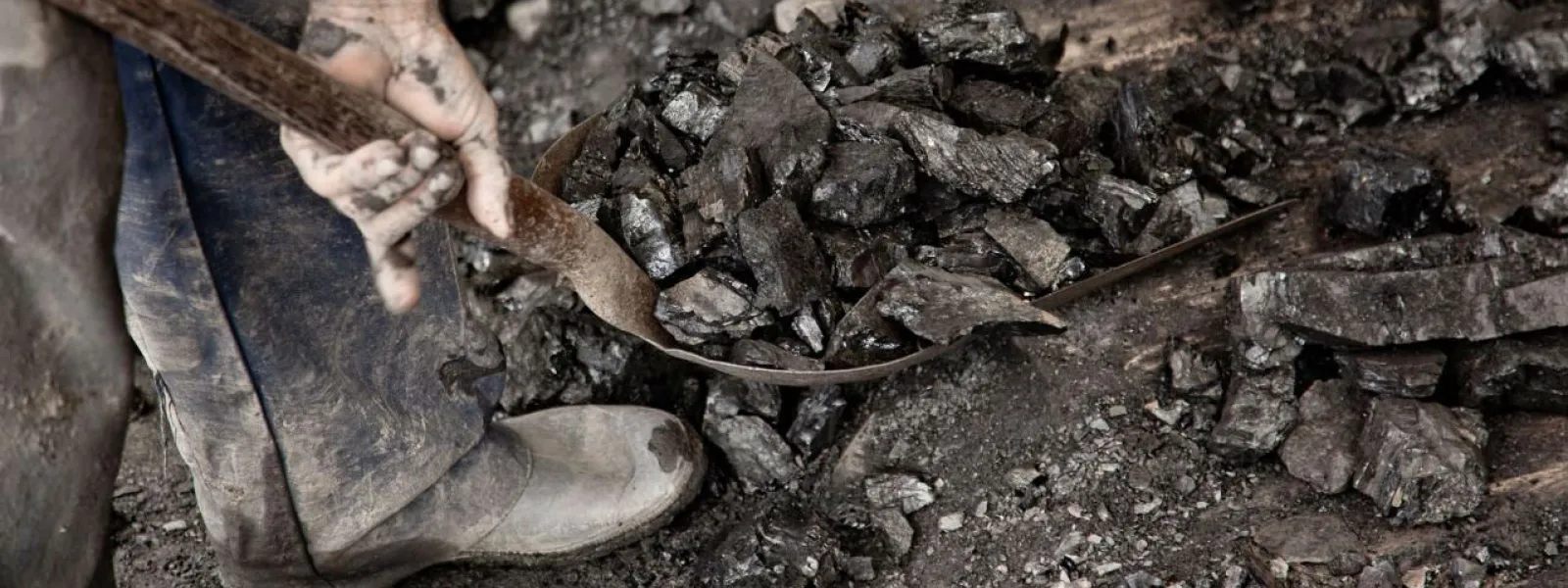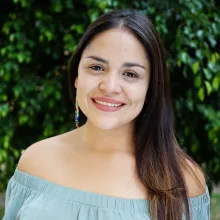
The Colombian town that’s taking on coal mining
Photo: Alejandro Arango / Flickr (Creative Commons).“To leave for good is painful,” Flower Aria Rivera, 58, said with nostalgia. He doesn’t want to leave his land, his home. Doing so would mean leaving behind his identity, his story.
Flower is from Boquerón, Colombia, a town of nearly 900 residents in the northwest department of Cesar. His ancestors, directly descended from Africans, were among the first inhabitants of his small town and many others in the region. They lived from raising cattle and growing rice.
But that simple life is no more. The once-fertile soils of Boquerón have for more than 30 years been overtaken by large-scale coal mining operations.
Since the corporations arrived, the town has been absorbed by coal and the many damages it leaves behind—like unhealthy levels of air pollution, and the depletion of water from rivers and other natural sources.
The contamination had gotten so bad that, in 2010, the government ordered the mining company to relocate Boquerón’s residents. Eight years later, and that still hasn’t happened.
On the contrary, new families have been arriving to Boquerón in search of the compensation that will surely be distributed when relocation finally does occur.
“We want the mines to move, we want them to stop polluting our town,” said Flower, one of the most respected of the community, which has peacefully resisted despite the outbreak of skin and respiratory diseases.
Flower is not a conventional leader. He speaks softly, while smiling. His deep black skin contrasts with his pure white hair. He’s sweet and calm and, above all, full of faith and hope.
I met him two months ago when he participated with other leaders in a public forum co-organized by AIDA, Tierra Digna, CENSAT Agua Viva, University of Magdalena, the Environmental Justice Network of Colombia, and the Rosa Luxembourg Foundation.
There, participants discussed what’s needed to enable Colombia to move its economy away from coal exploitation and toward alternative energies—those that respect the both climate and communities.
“Coal has left us with nothing, only sadness,” Flower lamented.
Colombia is the fourth largest coal exporter in the world. As such, the government has the ethical and moral obligation to reduce its carbon emissions, which have contributed to exacerbating the climate crisis.
At AIDA, we believe in a clean energy future, and our work will continue to support the move towards a coal-free Latin America.
To close, I’d like to share a poem Flower wrote. In it, he expresses longing and love for his land, and his fear of the “damned black stone.”
A mi Boquerón
Boquerón del alma mía
Terruño de mis entrañas
Estoy perdiendo mi alegría
Mis costumbres y mis esperanzas
Camino lento y con tristeza
Con solo pensar en tu partida
Historia mía, historia tuya
Es como un llanto en noche buena
Quisiera morirme en tus recuerdos
Donde viví muchas nostalgias
De amores y vivencias de este mundo
Cómo te llevo Boquerón en el alma
Voces de recuerdos se escuchan a lo lejos
De un niño y un viejo
Como añorando el pasado
De Boquerón y sus hermosos tiempos
Partir sin regreso es doloroso
Y un diciembre sin ti es morir
Como regresar después a pajuil
Cuando mis zapatos se han roto
Ya inerme camina un boqueronero
Y la historia del tucuy, el manantial y la lomita está muriendo
Hoy hasta el mismo cielo está llorando
En gotas de agua convertidas en desespero
Quisiera regresar a las faldas de mi madre
Como cuando niño me escondía debajo de ella
Escucho a lo lejos la voz del patriarca Rivera Ángel
Que desde su tumba como deseando una esperanza
Adiós diablito caño, palma y paralú
donde di mi grito de libertad y olvidé mi esclavitud
de mi raza palenquera y también de chambacú
y olvidé por mis ancestros lo juro por ese cielo azul
Maldita piedra negra
Que hizo cambiar mi historia
Un humilde pueblo llora
La funesta partida de toda una vida
Juana Hofman

Juana Hofman was the coordinator of Colombia's Network for Environmental Justice. She is an attorney from the University of Rosario, where she taught environmental negotiation, was part of the Public Action Group, and coordinated the Public Opinion Observatory. She has a Master's Degree in Local and Regional Planning from the University of Sheffield, England. She is a professor of graduate level courses in environmental territorial management and a consultant in matters of environmental management and environmental law.
